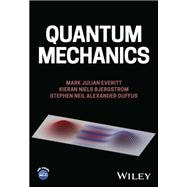Quantum mechanics: from classical analytical mechanics to quantum mechanics, simulation, foundations & engineering
Quantum mechanics is a fundamental subject in physics, often considered to be one of the most conceptually challenging topics. In many undergraduate courses, it is assumed that students are unfamiliar with the Lagrangian and Hamiltonian formulations of classical mechanics or the role of probability in Liouville's theorem (analytical mechanics). As a result, quantum physics is typically introduced using heuristic arguments, which can lead to surprising and counterintuitive concepts, and sometimes even incorrect interpretations.
This book takes an alternative approach by leveraging classical analytical mechanics to facilitate a natural transition to quantum physics. By introducing and utilising classical mechanics, we provide a solid foundation for understanding quantum phenomena. We discuss important examples within this context and explore both exact and computational methods.
Additionally, this book delves into quantum measurement and the transition from the quantum to the classical realm. It also introduces the emerging field of Quantum Systems Engineering, which focuses on the systematic design and construction of quantum technologies, such as quantum computers and sensors.
Key features of this textbook include:
- Mathematics and Classical Analytical Mechanics: The necessary mathematical background and classical analytical mechanics are introduced gradually, allowing readers to focus on one conceptual challenge at a time.
- Deductive Approach: Quantum mechanics is presented on the firm foundation of classical analytical mechanics, ensuring a logical progression of concepts.
- Pedagogical Features: The book includes helpful notes, worked examples, problems, computational challenges, and problem-solving approaches to enhance understanding.
- Comprehensive Coverage: It goes beyond introductory texts by including topics such as open quantum systems and phase-space methods. Advanced computational methods are also discussed, including good programming practices and code design. Much of the code needed to reproduce figures throughout the book is provided.
- Consideration of Foundations: The measurement problem and correspondence principle are addressed only after sufficient material has been introduced to allow for an open and critical discussion.
- Introduction to Quantum Systems Engineering: This book provides an accessible introduction and motivation to this framework.
This textbook is suitable for undergraduate students in physics and graduate students in mathematics, chemistry, engineering, and materials science.








